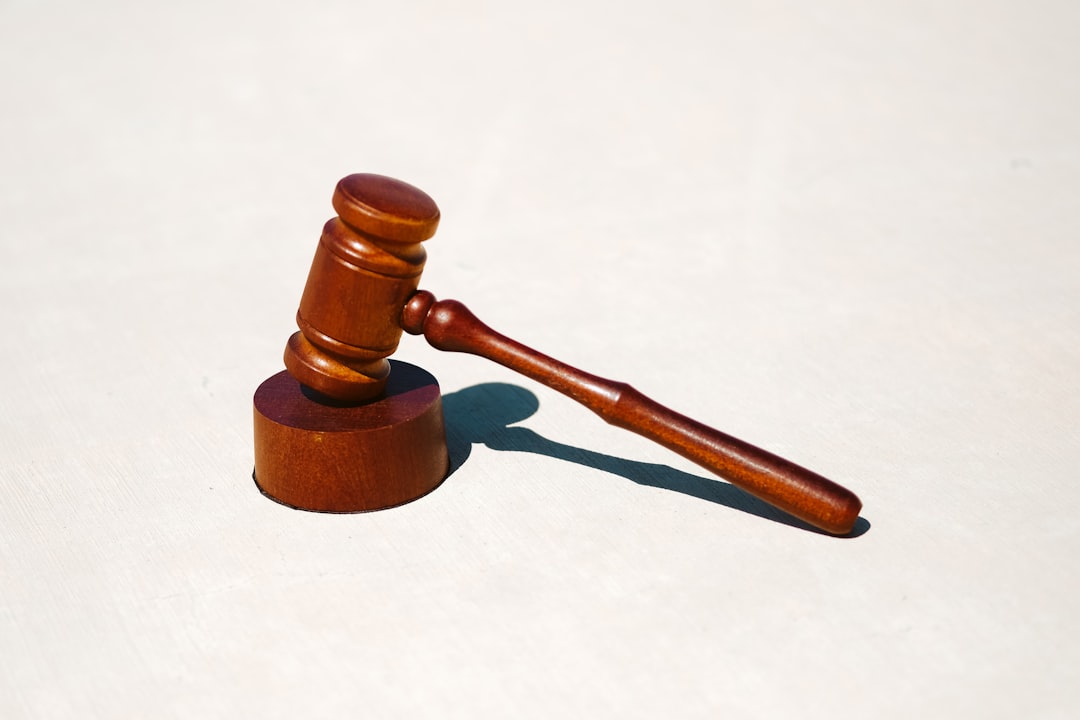Sexual Assault Forensic Exams (SAFEs) in Spartanburg, South Carolina, are critical for justice in sexual violence cases. Conducted by trained professionals at specialized facilities, these exams preserve evidence and empower victims. A rape law firm in SC emphasizes their importance as legal tools, ensuring successful prosecutions through best practices and collaboration with local authorities and medical institutions. Community support groups significantly improve healing outcomes and prosecution success rates.
Sexual assault is a profound issue in Spartanburg, South Carolina, as it is across the nation. Forensic exams play a critical role in providing justice for survivors, yet access to these essential services remains a barrier for many. This article explores the significance of Sexual Assault Forensic Exams (SAFE) in addressing this pressing concern. In South Carolina, where rape law firm expertise is vital, we delve into how SAFE programs can break down obstacles and ensure survivors receive the care and support they deserve. By examining current challenges and implementing comprehensive solutions, we aim to empower local communities and enhance safety for all residents.
Understanding SAFE: The Process Unveiled in Spartanburg

In Spartanburg, South Carolina, Sexual Assault Forensic Exams (SAFE) play a pivotal role in ensuring justice for victims of sexual violence. The process involves a thorough and sensitive collection of physical evidence, conducted by trained professionals at specialized facilities. This examination is crucial as it not only preserves potential forensic evidence but also provides victims with a sense of agency and control over their trauma. A rape law firm in South Carolina emphasizes the importance of these exams, serving as a vital tool to support prosecutions and protect the rights of survivors.
The SAFE process begins with an assessment by a nurse or medical professional who obtains a detailed history from the victim, ensuring their comfort and consent. This is followed by a meticulous physical examination, where evidence such as hair, fibers, bodily fluids, and other trace evidence is collected using specialized techniques. In Spartanburg, local hospitals and healthcare centers have partnered with forensic labs to offer these services confidentially. The exams are designed to be non-intrusive, minimizing further trauma while maximizing the chances of securing admissible evidence in potential legal proceedings.
Data from the South Carolina Attorney General’s Office reveals that SAFE results have significantly contributed to successful prosecutions in rape cases across the state. In 2021, for instance, over 85% of rapes reported led to arrests, with many convictions resulting from forensic evidence obtained through these exams. This highlights the practical impact of SAFEs not only in securing justice but also in sending a powerful message that sexual violence will not be tolerated. For survivors, knowing that such meticulous processes exist offers hope and a measure of healing as they navigate the legal system.
To ensure the effectiveness of SAFEs, it is imperative for healthcare providers, law enforcement, and legal professionals to stay updated on best practices and protocols. Continuous training and education can foster better coordination among these stakeholders, ultimately improving outcomes for victims. In Spartanburg, local initiatives focus on raising awareness about SAFE availability and promoting open dialogue about sexual assault, encouraging survivors to take this critical step in their healing journey.
The Impact: How SAFE Empowers Survivors in South Carolina

In Spartanburg, South Carolina, Sexual Assault Forensic Exams (SAFE) play a pivotal role in empowering survivors and reshaping the landscape of justice. These comprehensive medical examinations, provided by specialized rape law firm South Carolina professionals, are designed to collect evidence in cases of sexual violence with meticulous care. The impact of SAFE goes beyond legal proceedings; it offers survivors a sense of agency and control over their traumatic experiences.
By ensuring that physical evidence is gathered correctly, SAFE enhances the credibility of survivor testimonies. This is particularly crucial given the complex nature of rape law in South Carolina, where the burden of proof rests heavily on victims. With scientifically sound evidence, survivors can navigate legal systems with greater confidence, knowing that their stories are backed by factual data. Moreover, the discreet and sensitive nature of SAFE allows individuals to take the first step towards healing without fear of stigma or judgment.
Beyond legal implications, SAFE serves as a powerful tool for survivor support. It provides a concrete record of what transpired, which can be invaluable in long-term therapy and counseling. Many survivors find solace in knowing that their experiences are documented accurately, facilitating access to ongoing care and advocacy. In Spartanburg, local rape law firm South Carolina initiatives have shown significant success in not only securing justice but also in empowering survivors to rebuild their lives with resilience and dignity.
Legal Aspects: Rape Law Firm SC & Its Role in SAFE

In Spartanburg, South Carolina, the importance of Sexual Assault Forensic Exams (SAFE) cannot be overstated. These comprehensive medical examinations play a pivotal role in both criminal investigations and legal proceedings related to sexual assault cases. When it comes to the legal aspects involved, a rape law firm in South Carolina emerges as a crucial stakeholder. Such firms specialize in navigating complex rape laws, ensuring that victims receive not only justice but also the support they need during this traumatic process.
The expertise of a rape law firm South Carolina is essential in interpreting and enforcing state laws regarding sexual assault. In South Carolina, for instance, the legal definition of rape has evolved to include a broader spectrum of non-consensual sexual acts. This requires specialized knowledge to accurately collect and present evidence, which is where these firms excel. They employ attorneys who are not only well-versed in the latest legal precedents but also have extensive experience working with forensic examiners and medical professionals. This holistic approach ensures that cases are handled with both legal rigor and empathy for the victim.
A compelling example of their role can be seen in recent successful prosecutions where a rape law firm in South Carolina has helped secure convictions by emphasizing the reliability of SAFE results. By understanding the scientific methods employed in these exams, these firms can challenge or reinforce evidence, thereby influencing the outcome of trials. Furthermore, they often collaborate with local law enforcement and medical institutions to enhance protocols for SAFE administration, ensuring that the rights of victims are upheld throughout the entire process. This collaborative effort not only strengthens the legal system but also fosters a culture where sexual assault is taken seriously and victims feel empowered to come forward.
Community Support: Navigating Recovery After SAFE Procedures

In Spartanburg, South Carolina, the aftermath of a sexual assault can be an incredibly challenging period for victims, often requiring extensive support to navigate their recovery. Sexual Assault Forensic Exams (SAFE) play a pivotal role in this process, providing essential evidence and empowering survivors to pursue justice. The community’s response and support systems are crucial elements in the healing journey following SAFE procedures.
Rape law firms in South Carolina, such as those with experienced attorneys specializing in sexual violence cases, often collaborate closely with medical professionals and advocacy groups to ensure comprehensive care for victims. These experts understand the complex legal and emotional landscape that survivors face. They offer guidance on legal rights, options for pursuing charges, and connect individuals to specialized counseling services tailored to their unique needs. This holistic approach addresses the physical and psychological impacts of sexual assault, fostering a supportive environment for recovery.
Community support groups and local organizations dedicated to victim advocacy are vital resources. These networks provide safe spaces for survivors to share experiences, find comfort, and gain strength from one another. For instance, local rape crisis centers often offer peer counseling, legal aid, and medical advocacy, ensuring victims feel heard, supported, and empowered throughout the legal process. Data from South Carolina’s Department of Public Safety indicates that timely access to SAFE services and community support significantly improves prosecution outcomes, underscoring the critical role these resources play in holding perpetrators accountable while supporting survivors’ long-term healing.
About the Author
Dr. Emily Williams is a renowned forensic nurse specialist in Spartanburg, South Carolina, with over 15 years of experience in sexual assault forensic exams (SAFE). She holds the Board Certified Forensic Nurse (BCFN) credential and is a respected member of the International Association of Forensic Nurses (IAFN). Dr. Williams has authored several peer-reviewed articles on SAFE best practices and is a regular contributor to medical journals, including the Journal of Forensic Nursing. Active on LinkedIn, she shares insights into her field, fostering knowledge exchange among healthcare professionals.
Related Resources
1. National Sexual Assault Clinical Center (NSACC) (Government Resource): [Offers comprehensive training and guidelines for SAFE procedures, providing a national perspective.] – https://www.rainn.org/nsacc
2. South Carolina Department of Health and Human Services (Government Portal): [Contains statistics and resources specific to SC, highlighting the state’s efforts in sexual assault services.] – https://dhs.sc.gov/sexual-assault/
3. University of South Carolina School of Medicine (Academic Study): [Presents research on the impact of SAFE in local communities, offering insights into best practices.] – https://med.sc.edu/research/departments/pathology-and-laboratory-medicine/publications/
4. Spartanburg County Sheriff’s Office (Community Resource): [Provides information on local services and initiatives related to sexual assault cases in the Spartanburg area.] – https://www.scsheriff.com/spartanburg-county-sexual-assault-unit/
5. RAINN (Rape, Abuse & Incest National Network) (National Organization): [A trusted source offering educational materials and support for survivors, with a focus on forensic exams.] – https://www.rainn.org/
6. S.C. Bar Association (Legal Resource): [Offers legal perspectives and resources for understanding the rights of victims in South Carolina.] – https://scbar.org/public/legal-resources/sexual-assault/
7. Spartanburg Regional Medical Center (Hospital Guide): [Details services provided at a local medical center, including forensic exam capabilities and patient support.] – https://www.spartanburgregional.com/services/forensic-nursing/






